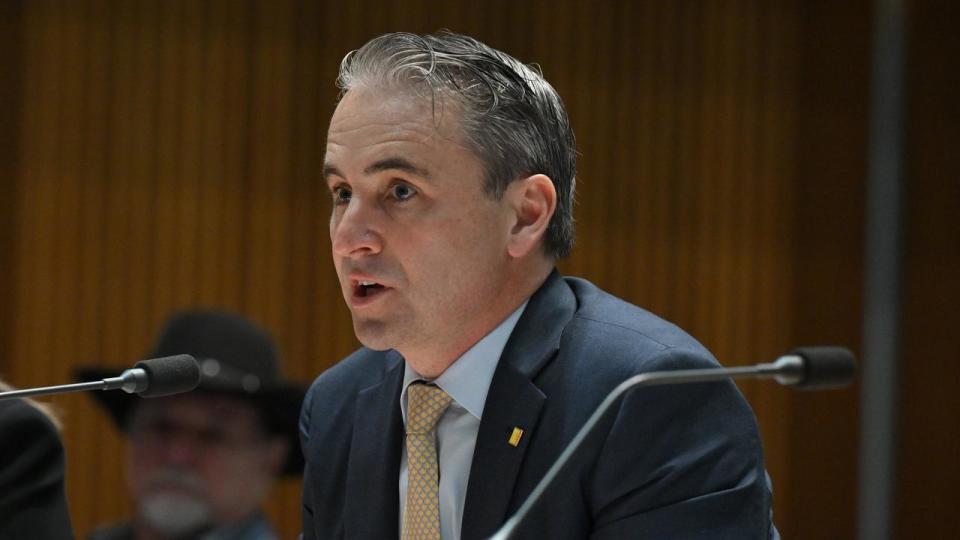Scams, soaring mortgage payments and the rising cost of living will be top of mind as the heads of two of Australia’s biggest banks arrive at parliament for a political grilling.
National Australia Bank chief executive Andrew Irvine and Shayne Elliot, the head of Australia and New Zealand Banking Group Limited (ANZ), will appear before a House of Representatives review of Australia’s big four banks on Friday.
The big four control about 80 per cent of the Australian banking sector and have been accused of exacerbating financial pressures on their customers.
Westpac and Commonwealth Bank CEOs fielded questions about over their companies’ interest rates, card surcharges and balance sheets on the first day of the inquiry on Thursday.
Australians with mortgages have continued to feel the hip pocket pain as the official cash rate has remained at 4.35 per cent since November.

Westpac boss Peter King said interest rate cuts could be on the cards in early 2025 but noted there was “still a bit of time to get through before we get there”.
Critics also accused Commonwealth Bank of racking up $9.8 billion in profits by overcharging customers.
The bank’s chief executive Matt Comyn said these claims were “fact-free rhetoric” and noted inflation and higher interest rates had an uneven impact on Australians.
Young people and working families were most sensitive to price changes, especially if they had lower incomes and smaller savings buffers, Mr Comyn said.
Scams have continued adding to these financial burdens with Australians losing more than $2.74 billion in 2023.
Though the big four banks have attempted to intervene and stopped hundreds of millions in customer losses, politicians noted their reimbursement levels were relatively low at about four per cent and averaged about 36 per cent of the amount stolen.
Mr King said this was because his bank looked at reimbursement on a case-by-case basis and sometimes chooses not to pay customers when they have notified them of the scam and the person chooses to proceed regardless.
The Westpac head called for a scam reimbursement framework that would clearly outline expectations for social media, telcos, customers and banks.
